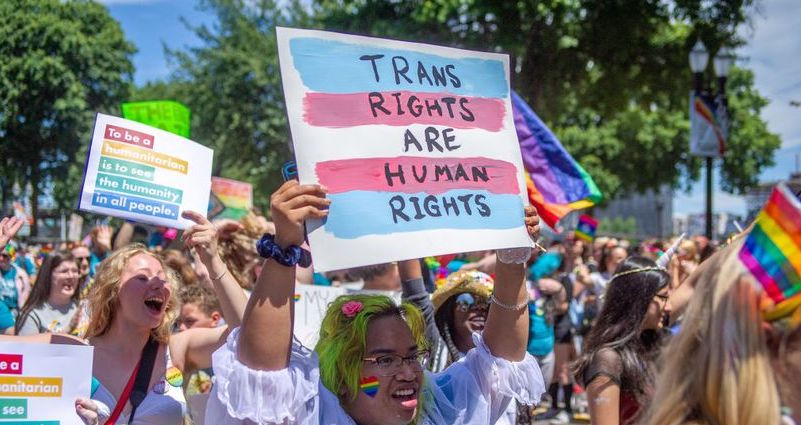As part of new guidance on transgender issues, lecturers at Edinburgh University have been told to avoid using ‘microinsults’ like: ‘I wanted to be a boy when I was a child’. It’s probably a good thing that I do not teach there, since I certainly wanted to be a girl.
Transgender guidance used to be simple and effective. When I transitioned in 2012, my colleagues were advised to continue to treat me the same as before (i.e. as a human being). They did, and all was well. Certainly, we all had far too much work to do than to worry about my change of wardrobe.
But getting on with life as before is no solution for the new breed of transgender activists who seem to think that the world revolves around them. The new Edinburgh guidance restricts language — lecturers are advised to avoid using the ‘labels’ man and woman — and change their way of thinking about sex and gender, lest they upset any transgender people within this spiral arm of the Milky Way.
Of course, staff at Edinburgh have also been encouraged to wear rainbow lanyards, and put their pronouns in email signatures. But at some point, somebody needs to ask: why? Pronoun signatures are not the easy-win that our progressive allies might think they are. Not every sufferer of gender dysphoria can be out to the world. And while some people may wrap themselves in pink-and-blue flags and trumpet their identity, others are forced to hide their inner feelings. Whether they are driven by shame, guilt and fear, or they simply do not want to disrupt hurt their families, does not matter.
Had pronoun circles (declaring one’s pronouns) been the norm 20 years ago, I would have crumbled inside every time it was my turn to say “my pronouns are he and him.” What else could I have said? But the activists do not care about those people any more than they care about the rights of women or the safeguarding of children, two other groups who have been victim to this self-seeking and self-serving movement.
The biggest culprits, however, are those policymakers who have disengaged with reality and pandered to every request. Trans rights are indeed human rights — we are human beings after all — but we surely do not need to be treated with such reverence that we cannot be questioned or challenged.
It is not a micro insult to say that “you are either a man or a woman” — whatever Edinburgh university might be telling its staff. It is the truth. Transgender people have come a long way in society since we lived in fear of being ridiculed or dismissed from our jobs, but only the truth will set us free.











Join the discussion
Join like minded readers that support our journalism by becoming a paid subscriber
To join the discussion in the comments, become a paid subscriber.
Join like minded readers that support our journalism, read unlimited articles and enjoy other subscriber-only benefits.
Subscribe